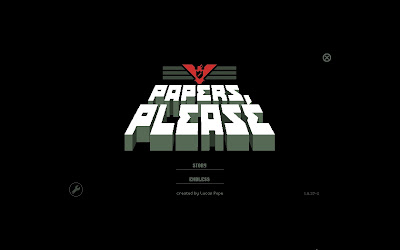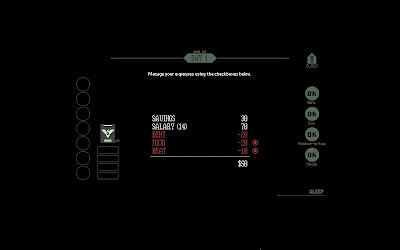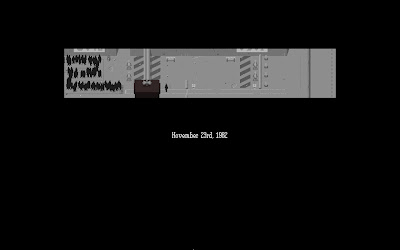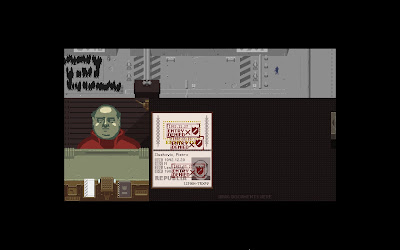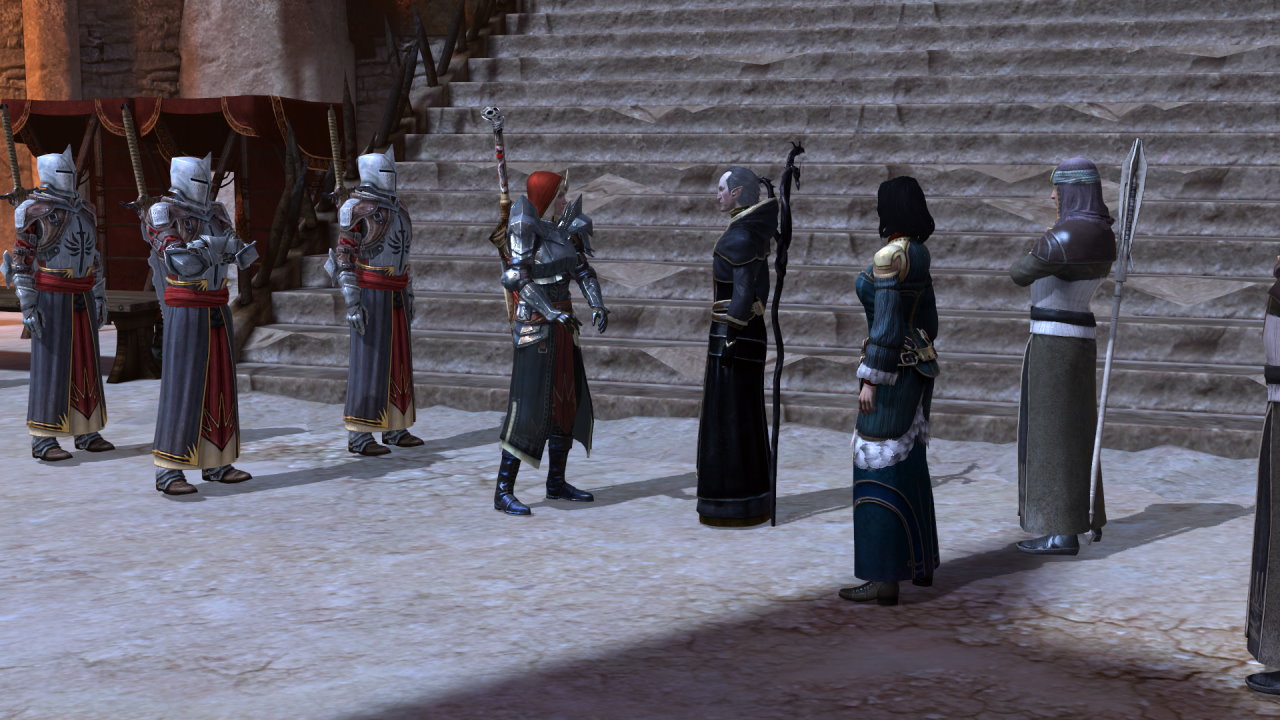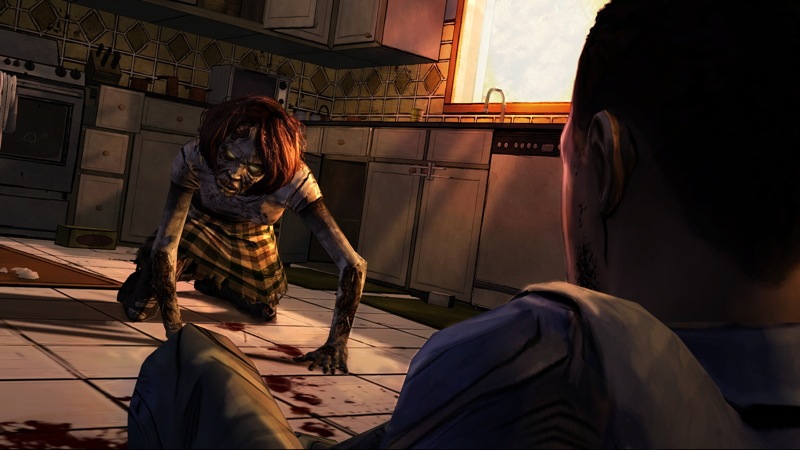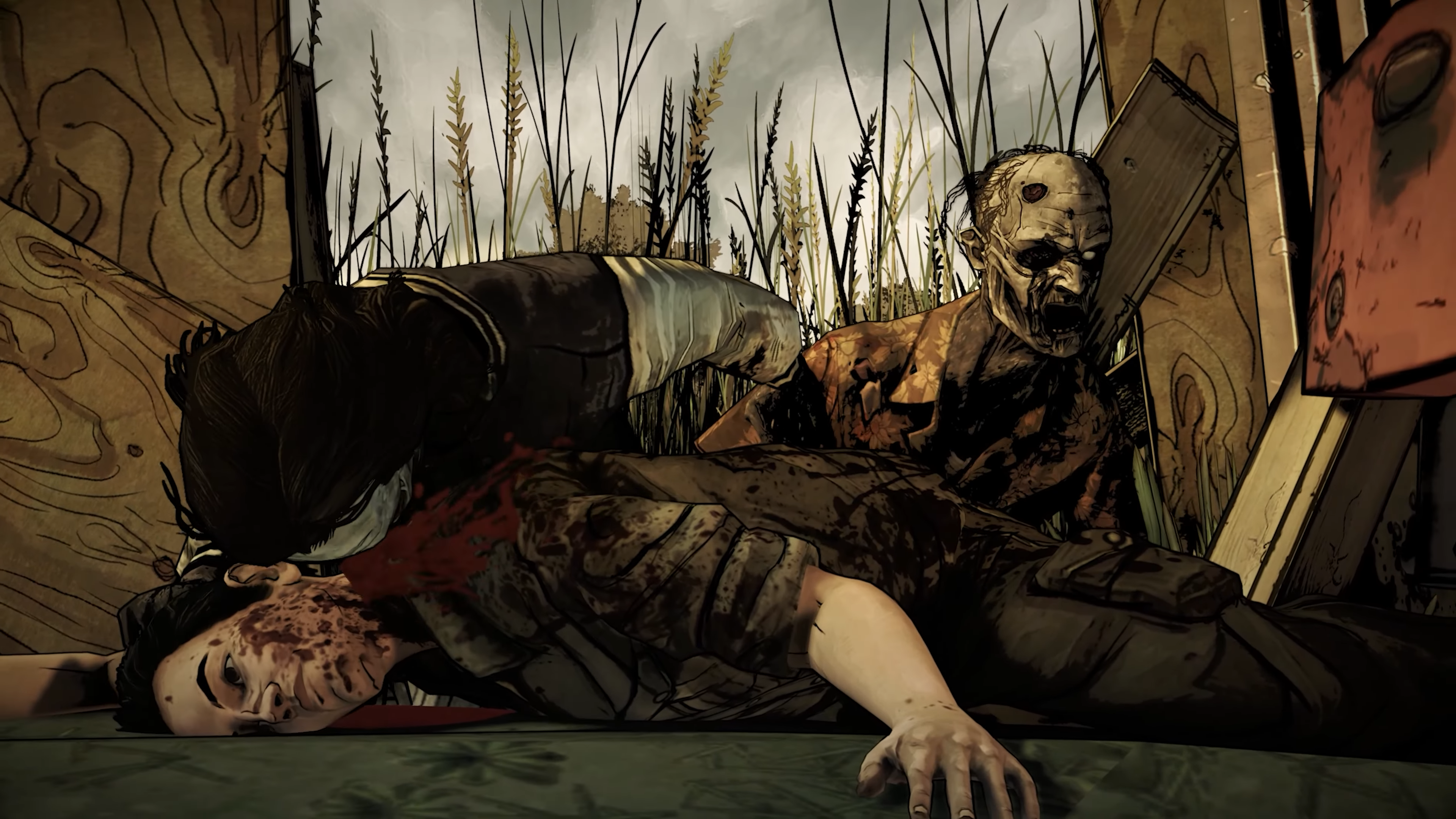The faded colours and muted sounds wash over you as the steady thumping of rubber stamps lulls you into a false sense of security.
Accepted - you don't notice the mistakes, perhaps there are none.
Denied - you notice the date, the mismatch of photo ID, the wrong Passport numbers.
You do not break out of your rhythm, instead steadily keep up with the pace that you've set yourself - more than 15, better if it's 20. But those are goals that you do not think about in this medley. You keep to the task at hand. You ignore the pleas, you do not see the end to a the line, you do not worry about what happens within your country's walls.
All is put down to the simple query of "Papers please."
Recently I've been playing Papers, Please, a dystopian paper thriller, that locks you into an endless (well 31 day) cycle of accepting and rejecting entry into Arstozka - as well as whatever story elements sneak their way past border security.
And it's a great. Not just because of the tedium of bureaucracy (which somewhat paradoxically is one of it's highlights), its variation of plot, or the complimentary aesthetic, but the steady decline (for the player) into simply being a cog in the machine of Arstozka.
Much like Hotline Miami, or Spec Ops: The Line, the game coerces the player into a subtle devaluation of human lives, towards viewing them as simply objects of monetary value. Faces, by the end of the game, are made into no more than bar-codes for you to scan, process and move on.
The game does this in two ways: the mechanised interaction of immigration, and the motivation of your family's well being. For the time being we'll focus on the motivational aspect, as while the game mechanics are the actual game part, the storyline, or character imperative to continue in this bleak existence is based upon the family.
Family
Every day after your shift, you are presented with a table of sorts listing the money that you earned, and the various costs of food, rent, heat, and whatever else pops up. To the right there are four circles, coloured green just like the text with the words "Ok," imprinted within them, underneath lie their names. Wife, Son, Mother-in-law and Uncle. These are the four beings that rely upon your bureaucratic efficiency to protect them from the threat of starvation, sickness, or homelessness (the player's character, interestingly enough, does not suffer from sickness, or hunger, only bankruptcy). These are the people that need your job, that you accept and deny immigrants and other foreigners. These are the people that you agonise over whether to keep fed, or warm, because you don't have enough money to pay for everything. These four green dots, provide all (or at the very least most of) the emotional motivation that encourages players to keep going for 31 days.
Mitigating the harshness of Arstozkan life as well, it is possible to raise the player's family's quality of living with various extra costs, alongside the necessities of food, heat and rent. Failure to do so results in either the death of one of your family members (due to sickness), or your imprisonment.
This game mechanic is the motivation for succession in the game, the suggestion for self improvement and the reprimand against laziness. It works well as an emotional tool, especially when you consider that you never actually see your family, instead they're all represented by one word states "Ok," "Sick," "Cold,""Hungry," or even, if you've forgone food, or heat, enough times "dead." A very impersonal emotional tool, if you think about what represents them, but an effective one nevertheless. It works towards the players self interests and allows for the player to rationalise their behaviour for denying people entry into Arstozka.
Border
Overlaying this emotional motivation is the border guard interaction, where you actually interact with people. Here you provide asylum to people fleeing persecution, put a halt on smugglers, pass through diplomats - all provided they have the right papers. Unfortunately this means that a lot of entrants are denied based upon incorrect paperwork; whoever issued them made a mistake, the entrant wasn't able to renew his/her passport, etc. At the start of the game, this isn't so much a problem, if you're feeling particularly generous you can allow people in regardless of the state of their papers - maybe their words convinced you; a mother anxious to return to her son, a citizen forgets their ID card. In any case you can let them in, you'll suffer a penalty of course (no fines for the first two, then five for the next two, then ten, and so on), but you'll have the satisfaction of helping out other individuals. Soon though, money becomes tight, and the opportunities for "letting one slip," become smaller and you start to begin moral triage. This person hasn't explained themselves DENIED, this person isn't convincing, DENIED, this person... hasn't offered anything DENIED. It becomes a form of self preservation, and slowly, stamp by stamp, you begin to care less and less about these people, and more about what they represent - money.
In a way the whole endeavour becomes a metaphor for a bleak life, an unending march to the promise of a brighter future, while forever becoming harder and harder to progress, until your corpse is just another one of the hundreds trampled in the entry line to Arstozka. Never mind the warning about dystopian governments, or the moral analysis of boarder security operations (trusting people vs. the harm that they can do) - Paper's Please, for me, was a waring about emotional priorities; between an impersonal family, who you prioritise for, and entrants who, wear the effects of that prioritisation. You are, for most of the game trading lives (this presumes that on denial their lives will suffer), for the lives, and then happiness of your family. But why does my family (your family, the family) deserve any of that? Compared to what goes on at the border, there's less of a bond with them, than with the strangers that you process. At least there's conversation.
Of course there may be technical, and game mechanic consideration that could easily be the reason for this development in the game. Certainly some emotional interaction with the family is addressed in Paper's Please, in the form of gifts received from the family of photos, or pictures - but I shy away from this, as it is based upon you spending money on extra things. In this you're still trading in lives, for a family that you know little about.
